
Enugu: The Coal City Gem of Nigeria
Nestled in the southeastern region of Nigeria, Enugu is known fondly as the Coal City. This vibrant city is a blend of history, culture, and natural beauty, making it a captivating destination for tourists. Enugu's roots trace back to its colonial past when coal mining was the city's mainstay, giving it both its nickname and its initial growth spurt. Today, remnants of this era can still be seen, adding a historical charm to the city's modern hustle and bustle. For those who love the outdoors, Enugu does not disappoint. The city is surrounded by lush hills and scenic landscapes, including the famous Udi Hills and the enchanting Awhum Waterfall. These natural wonders offer excellent opportunities for hiking, picnicking, and photography. The Milken Hills provide a panoramic view of Enugu, especially breathtaking at sunrise and sunset. Enugu is also a cultural haven. The city's vibrant arts scene is highlighted by the National Museum of Unity and the numerous local festivals that celebrate the rich Igbo heritage. The Enugu State University of Science and Technology (ESUT) and the Institute of Management and Technology (IMT) contribute to a lively academic atmosphere, often hosting cultural and academic events open to the public. Food lovers will find Enugu a culinary delight. The city is famous for its delicious traditional dishes such as 'Ofe Nsala' (white soup) and 'Okpa' (a delicacy made from bambara flour). The local markets, such as the Ogbete Main Market, are bustling with activity and offer a genuine taste of daily life in Enugu. Whether you are a history buff, nature enthusiast, culture seeker, or foodie, Enugu has something special to offer. Its warm and hospitable people will ensure your visit is both memorable and enriching.
Local tips in Enugu
- Visit the National Museum of Unity for a deep dive into the region's history and culture.
- Plan a hike to the Udi Hills for spectacular views and a serene experience.
- Try the local delicacies like 'Ofe Nsala' and 'Okpa' for an authentic taste of Enugu cuisine.
- Explore the bustling Ogbete Main Market to experience the local lifestyle and shop for unique souvenirs.
- Check out local festivals and events for a lively and immersive cultural experience.
Enugu: The Coal City Gem of Nigeria
Nestled in the southeastern region of Nigeria, Enugu is known fondly as the Coal City. This vibrant city is a blend of history, culture, and natural beauty, making it a captivating destination for tourists. Enugu's roots trace back to its colonial past when coal mining was the city's mainstay, giving it both its nickname and its initial growth spurt. Today, remnants of this era can still be seen, adding a historical charm to the city's modern hustle and bustle. For those who love the outdoors, Enugu does not disappoint. The city is surrounded by lush hills and scenic landscapes, including the famous Udi Hills and the enchanting Awhum Waterfall. These natural wonders offer excellent opportunities for hiking, picnicking, and photography. The Milken Hills provide a panoramic view of Enugu, especially breathtaking at sunrise and sunset. Enugu is also a cultural haven. The city's vibrant arts scene is highlighted by the National Museum of Unity and the numerous local festivals that celebrate the rich Igbo heritage. The Enugu State University of Science and Technology (ESUT) and the Institute of Management and Technology (IMT) contribute to a lively academic atmosphere, often hosting cultural and academic events open to the public. Food lovers will find Enugu a culinary delight. The city is famous for its delicious traditional dishes such as 'Ofe Nsala' (white soup) and 'Okpa' (a delicacy made from bambara flour). The local markets, such as the Ogbete Main Market, are bustling with activity and offer a genuine taste of daily life in Enugu. Whether you are a history buff, nature enthusiast, culture seeker, or foodie, Enugu has something special to offer. Its warm and hospitable people will ensure your visit is both memorable and enriching.
When is the best time to go to Enugu?
Iconic landmarks you can’t miss
Rewind Luxury Place
Discover the vibrant culinary experience at Rewind Luxury Place in Enugu, where delicious grills meet a lively bar atmosphere.
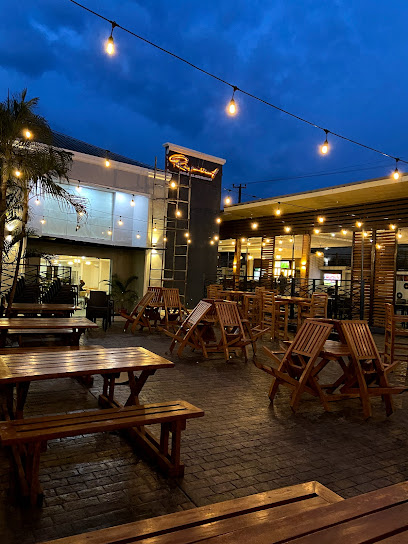
Nike Lake Hotel Resort
Discover the perfect blend of luxury and nature at Nike Lake Hotel Resort, where stunning views and relaxation await in Enugu, Nigeria.

Oakland Park
Experience the joy of adventure and relaxation at Oakland Park, a premier amusement park in Enugu, Nigeria, perfect for family fun and thrilling rides.
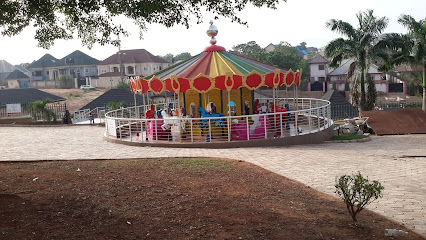
The Base Event Center
Discover The Base Event Center in Enugu, the ideal venue for conferences and events, blending modern facilities with a welcoming atmosphere.
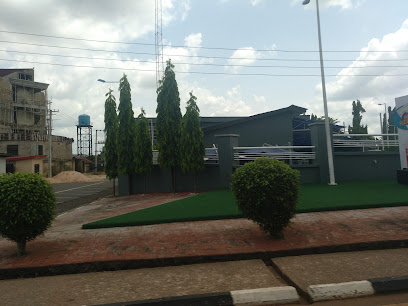
De Pines
Experience the best of Enugu's culinary delights at De Pines, a bar and grill nestled in a serene garden setting perfect for relaxation and socializing.
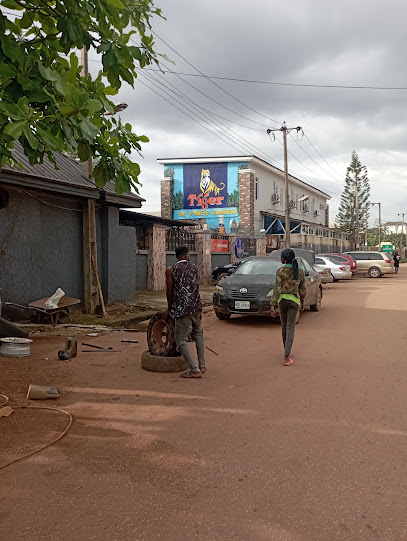
The Base Landmark
Experience the vibrant flavors at The Base Landmark, Enugu's premier grill restaurant offering a unique dining atmosphere and delectable cuisines.
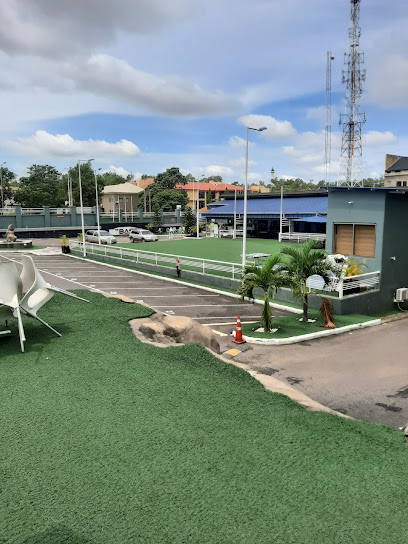
Miners Court
Discover the rich flavors of Enugu at Miners Court, where grilled delights meet local hospitality in a vibrant dining atmosphere.
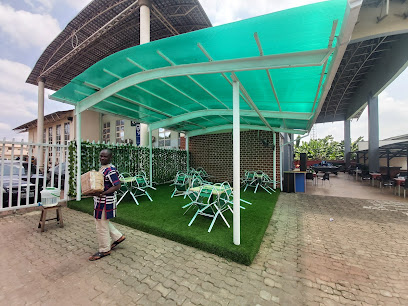
Ngwo Park
Discover the tranquility of Ngwo Park in Enugu, Nigeria, a perfect blend of nature and relaxation for all visitors.
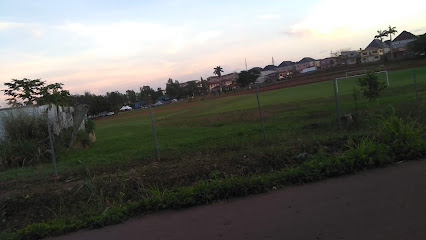
De DOME Event Centre
Discover the vibrant atmosphere and versatile event spaces at De DOME Event Centre, Enugu's premier venue for celebrations and gatherings.
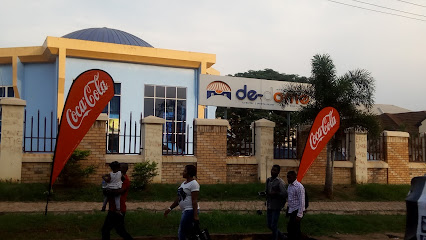
New Berries Park
Explore the serene beauty of New Berries Park in Enugu, Nigeria – a perfect oasis for nature lovers and families alike.
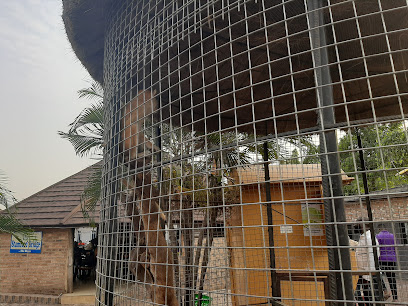
National Museum of Unity, Enugu
Explore Nigeria's rich heritage at the National Museum of Unity in Enugu, where history comes alive through diverse exhibitions and cultural showcases.
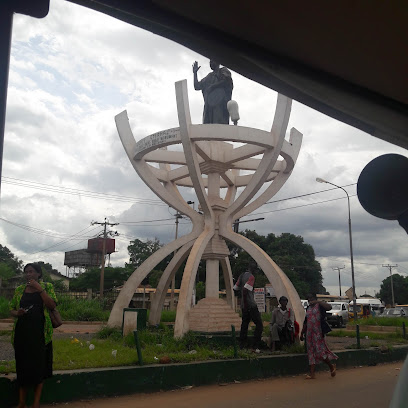
Unity Park
Discover the serene beauty and vibrant community spirit of Unity Park, a lush urban oasis in Enugu, Nigeria, perfect for relaxation and exploration.
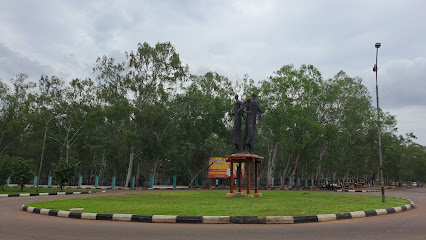
Octopus
Experience authentic Chinese fast food at Octopus, a culinary delight in Enugu's Independence Layout, offering fresh flavors and a cozy atmosphere.

Dekash Empire Global Limited
Discover the lively ambiance of Dekash Empire Global Limited, a premier lounge and event venue in Enugu, offering exquisite cuisine and vibrant nightlife.
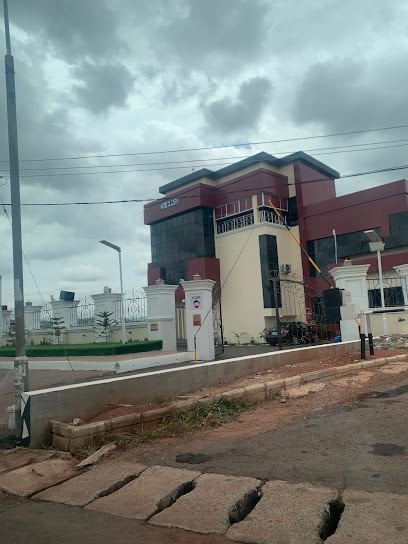
Latitude Café and Lounge
Discover the culinary delights of Enugu at Latitude Café and Lounge, where local flavors meet international cuisine in a cozy atmosphere.
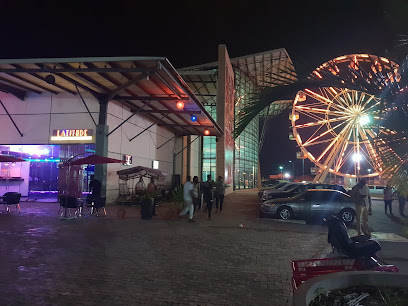
Unmissable attractions to see
Nike Lake Hotel Resort
Discover the perfect blend of relaxation and adventure at Nike Lake Hotel Resort in Enugu, where nature meets luxury for an unforgettable stay.

Peace Park
Experience tranquility and cultural engagement at Peace Park in the heart of Enugu, a perfect retreat for tourists seeking relaxation in nature.
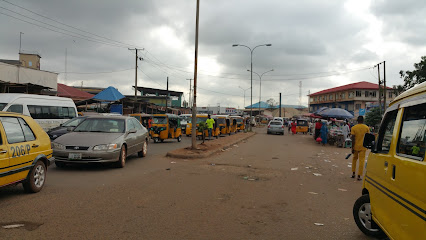
Oakland Park
Experience unforgettable thrills and family fun at Oakland Park, Enugu's premier amusement park with attractions for all ages.
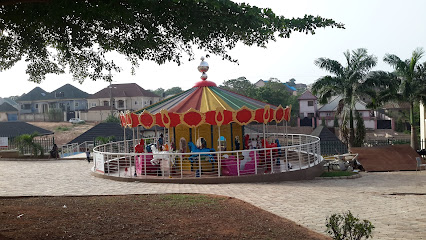
Gariki enugu
Explore Gariki Park in Enugu, the largest green space offering tranquility, community culture, and rich biodiversity in Nigeria.
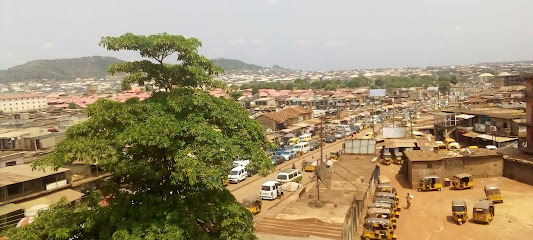
Ngwo Park
Discover the tranquility of Ngwo Park in Enugu, a lush green haven perfect for relaxation, picnics, and outdoor activities amidst nature's beauty.
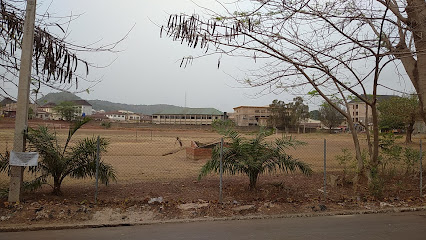
New Berries Park
Discover the serene beauty of New Berries Park in Enugu, offering lush landscapes, family-friendly activities, and a peaceful escape from city life.
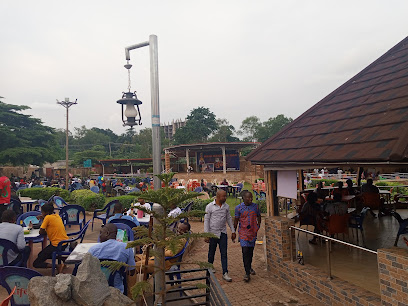
National Museum of Unity, Enugu
Discover the heart of Nigeria's cultural heritage at the National Museum of Unity in Enugu, where history and diversity converge.
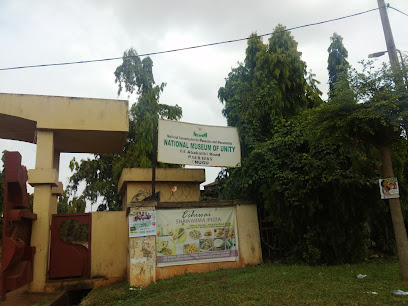
Unity Park
Discover the tranquil beauty of Unity Park in Enugu, a perfect blend of nature and community in Nigeria's vibrant city.
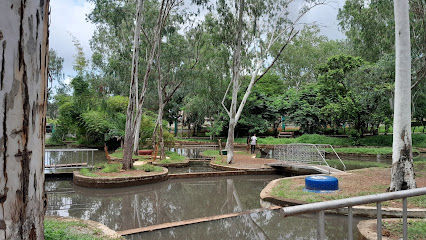
Centre For Memories
Explore the rich cultural heritage of Nigeria at the Centre For Memories, a captivating museum in the heart of Enugu, showcasing history and local artistry.
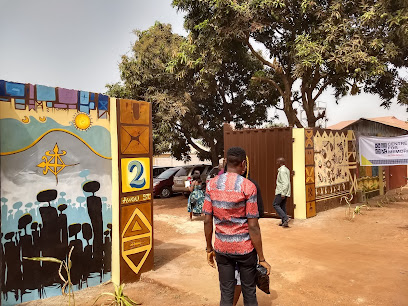
Entrance To Ohum Waterfall And Monastry
Explore the serene beauty of Ohum Waterfall and Monastery, a hidden gem in Enugu perfect for nature lovers and spiritual seekers.
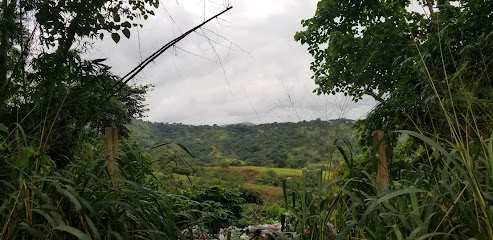
Agofure Park
Discover the serene beauty of Agofure Park, a lush green oasis in Enugu, perfect for relaxation, recreation, and experiencing local culture.
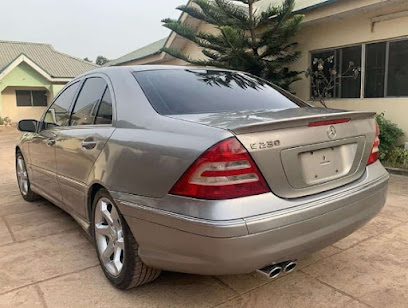
Philosophers Garden
Discover tranquility at Philosophers Garden in Enugu, a botanical paradise perfect for nature lovers and those seeking a peaceful retreat.
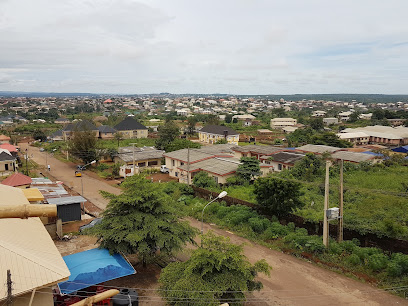
Onyeama Miners Memorial
Discover the Onyeama Miners Memorial in Enugu—a serene tribute to the miners who shaped the region's rich history.
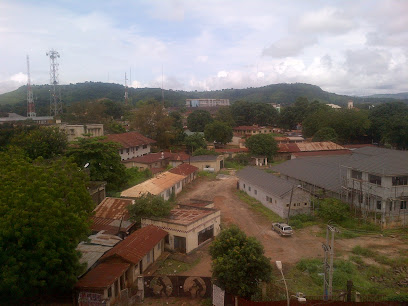
Ituku Ozalla Park
Experience the beauty of nature at Ituku Ozalla Park, a peaceful retreat in Enugu that offers the perfect escape for relaxation and recreation.
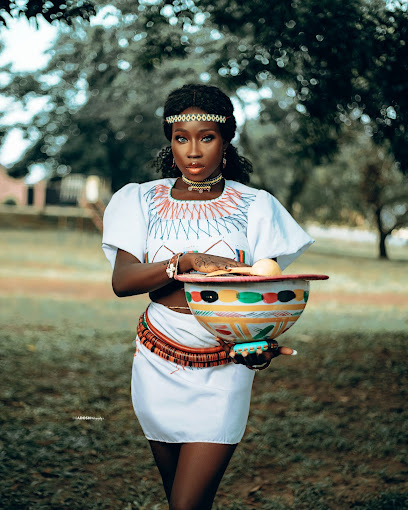
Ekulu Garden
Explore the serene beauty of Ekulu Garden in Enugu, a tranquil park perfect for relaxation, picnics, and enjoying nature's wonders.
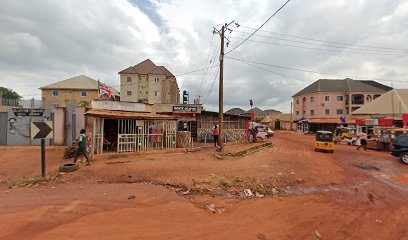
Essential places to dine
Ntachi-Osa
Experience authentic Nigerian cuisine at Ntachi-Osa in Enugu—where flavor meets tradition in a vibrant setting.
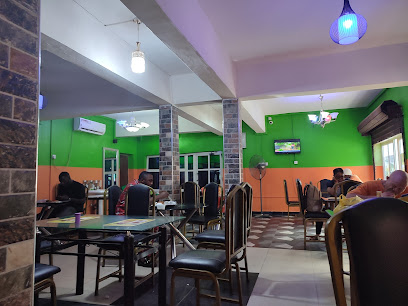
Rewind Luxury Place
Discover the vibrant flavors of Enugu at Rewind Luxury Place - where exquisite dining meets lively entertainment.
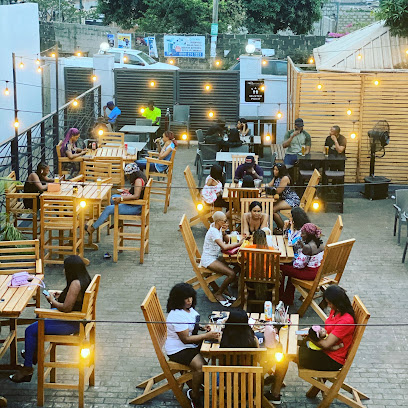
Dolphin Restaurant
Experience the vibrant flavors of Nigeria at Dolphin Restaurant in Enugu – where every meal tells a story.
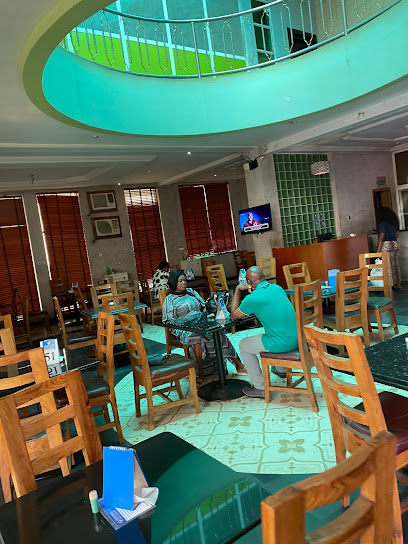
Roots Restaurant & Cafe
Discover delicious dining at Roots Restaurant & Cafe in Enugu - where local flavors meet international cuisine in a cozy atmosphere.
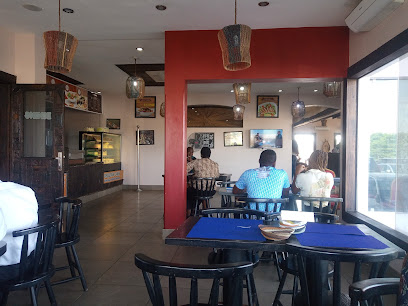
Crunchies Plus Concept
Discover Crunchies Plus Concept in Enugu – where fast food meets delightful flavors in a cozy atmosphere perfect for breakfast lovers.
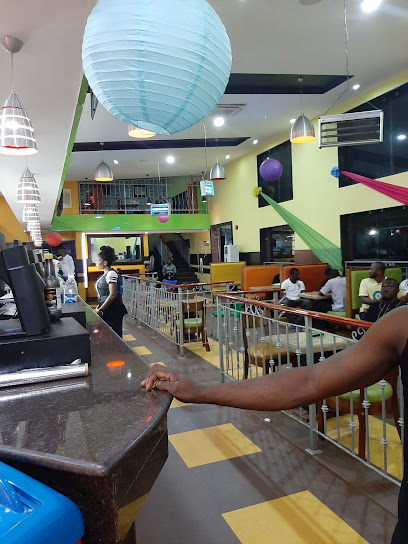
Celebrities
Experience authentic flavors at Celebrities Restaurant in Enugu – where delicious breakfast meets fast food delights!
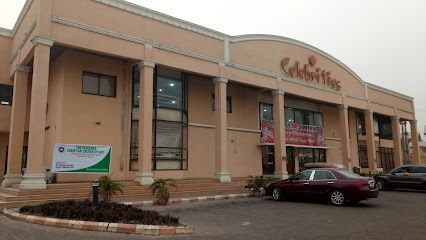
Open Sharaton
Discover the vibrant tastes of Nigeria at Open Sharaton in Enugu – where fast food meets local flavor.
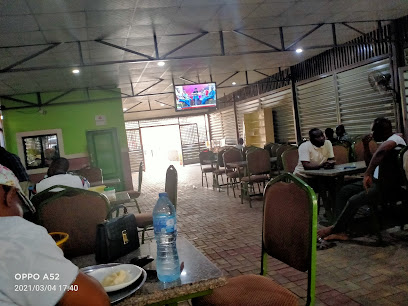
Octopus
Savor authentic Chinese cuisine at Octopus in Enugu – where delicious meets convenient.
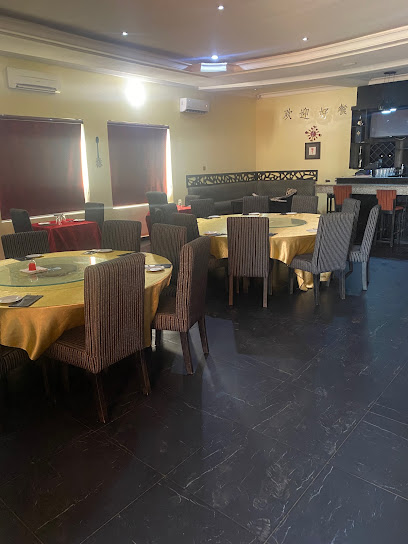
Latitude Café and Lounge
Discover Latitude Café and Lounge in Enugu: where delicious cuisine meets vibrant nightlife in an inviting setting.
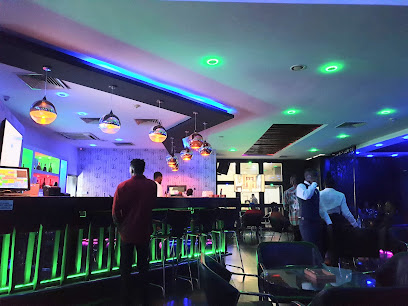
Kilimanjaro Restaurant
Discover Kilimanjaro Restaurant in Enugu: where fast food meets local flavors in a vibrant atmosphere perfect for tourists.
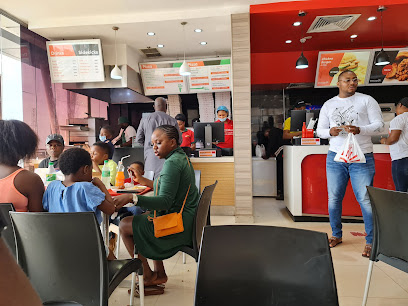
Genesis Restaurant
Discover delectable dining at Genesis Restaurant in Enugu – where fast food meets traditional flavors in a cozy setting.

Bush House Arena
Experience the vibrant flavors of grill cuisine at Bush House Arena in Enugu - where every meal is a celebration.
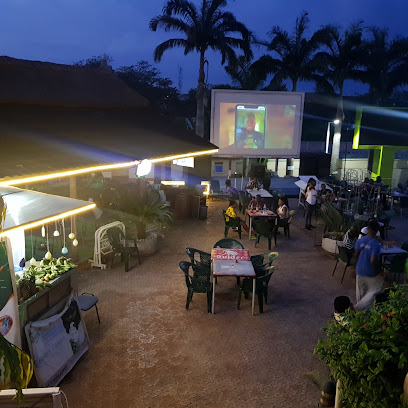
Dolphin Resturant
Experience authentic Nigerian flavors at Dolphin Restaurant in Enugu – a perfect spot for breakfast lovers seeking quality dining.

The Village Bistro
Discover authentic African cuisine at The Village Bistro - where every meal tells a story in Enugu's vibrant culinary scene.
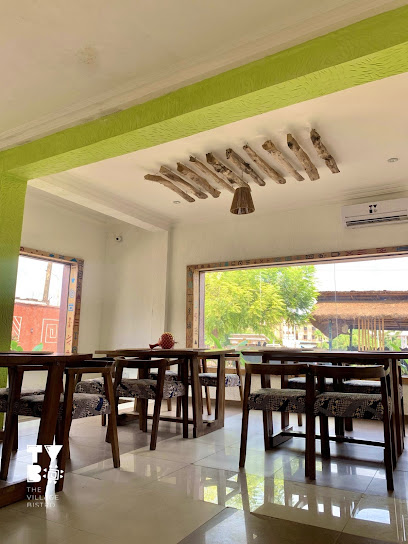
Foodopolis Enugu
Discover the flavors of Nigeria at Foodopolis Enugu - where every meal tells a story.
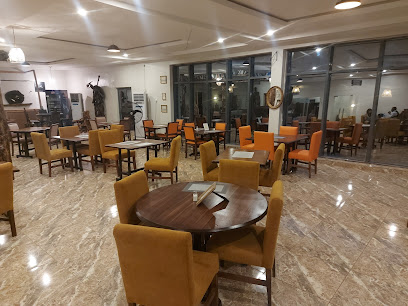
Markets, malls and hidden boutiques
Roban Stores
Experience the best of Enugu shopping at Roban Stores, where quality groceries and delightful ice cream await you in a vibrant atmosphere.
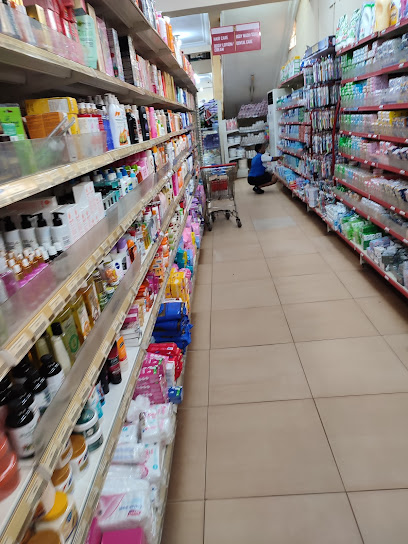
Eastern Shop
Explore Eastern Shop in Achara, Enugu—your one-stop destination for local flavors, groceries, and unique Nigerian souvenirs.

Pentagon Shopping Centre
Discover the heart of Enugu's shopping scene at Pentagon Shopping Centre, where variety meets quality in a vibrant grocery store setting.
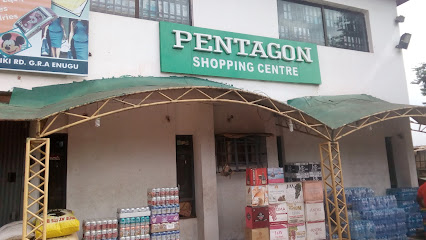
The Gift Shop
Discover unique treasures and authentic Nigerian crafts at The Gift Shop in Enugu, a perfect place for memorable souvenirs.

Bewowed
Discover unique gifts and local crafts at Bewowed, the ultimate shopping experience in Enugu, Nigeria.
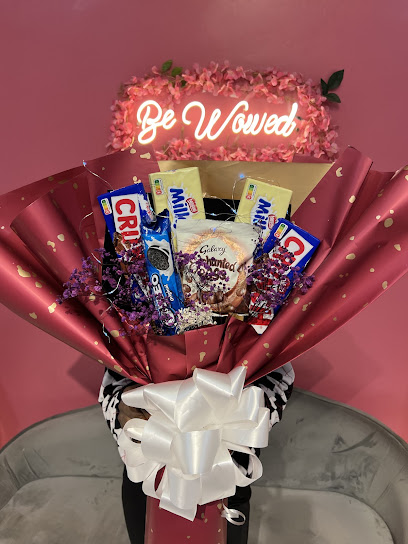
Odogwu collections
Explore Odogwu Collections, a boutique in Enugu offering unique fashion and accessories that reflect Nigeria's vibrant culture.
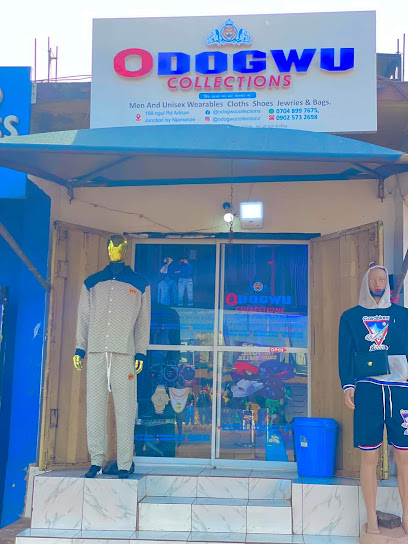
Everything Unique
Explore Everything Unique in Enugu for exquisite fashion accessories that reflect the vibrant culture and craftsmanship of Nigeria.
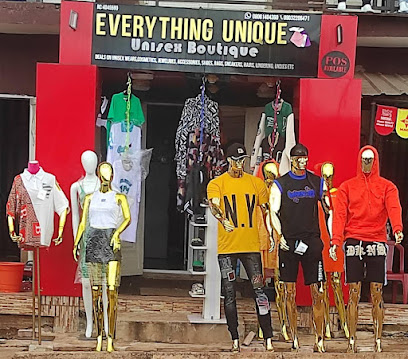
BRIGHT CYN EMPORIUM
Explore Bright Cyn Emporium: A Boutique Haven for Men's Fashion in Enugu, Blending Local Charm with Modern Style.
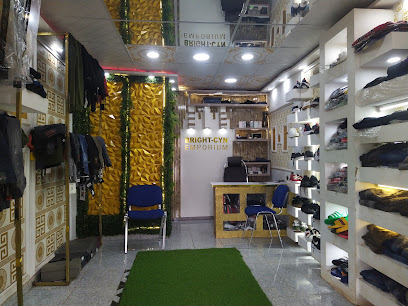
Shop 'n' Delight Shopping Center Limited
Discover a diverse shopping haven in Enugu with smoke products, gourmet wines, and local treasures at Shop 'n' Delight.
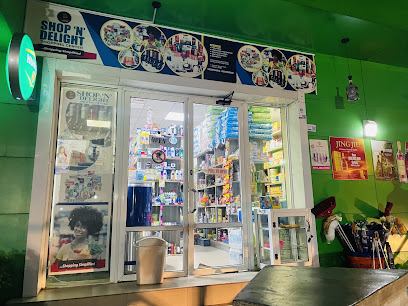
Nazzy shopping center
Experience the best shopping in Enugu at Nazzy Shopping Center, featuring local and international brands in a vibrant outlet mall.
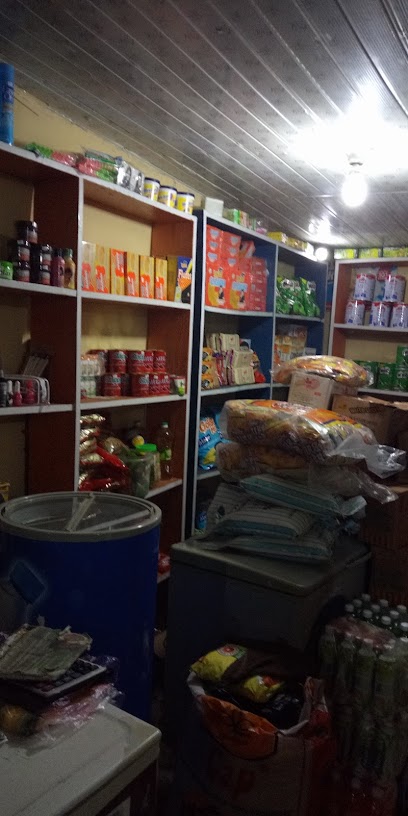
Daisyland Gift Shop
Explore the vibrant culture of Nigeria with unique gifts and souvenirs at Daisyland Gift Shop in Enugu.
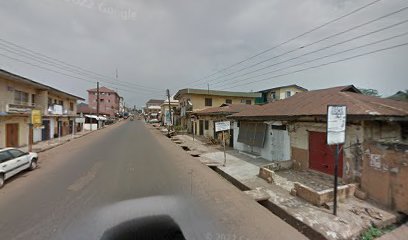
Madefit Urban Fashion Store
Explore Enugu's chicest boutique, Madefit Urban Fashion Store, where contemporary urban style meets local flair for an unforgettable shopping experience.
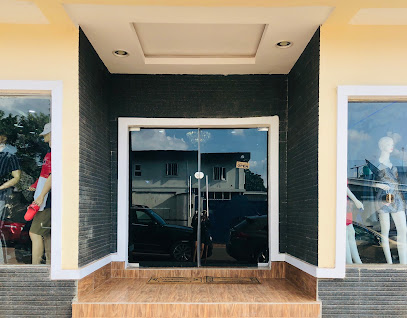
Gods Time Creations.
Discover unique Nigerian fashion at Gods Time Creations in Enugu's vibrant Powa Shopping Complex, a treasure trove for stylish tourists.

Best Price Boutique
Explore the best of local fashion and crafts at Best Price Boutique in Enugu, a must-visit for unique shopping experiences.
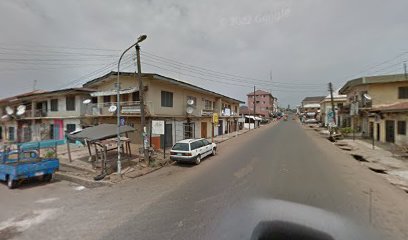
Dukesonia Collections
Explore Dukesonia Collections in Enugu for a unique shopping experience featuring fashion, accessories, and local craftsmanship.

Essential bars & hidden hideouts
Rewind Luxury Place
Experience the vibrant nightlife of Enugu at Rewind Luxury Place, where delicious grilled cuisine meets a lively atmosphere and sports entertainment.
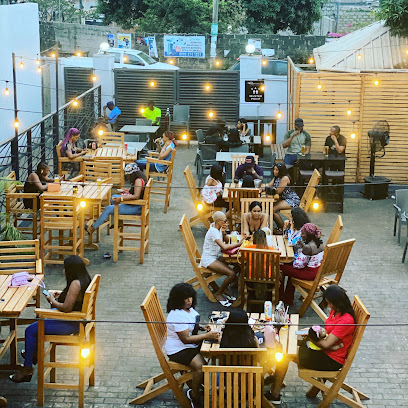
De Pines
Discover De Pines, Enugu's enchanting garden bar, where delicious food and vibrant ambiance meet for an unforgettable experience.
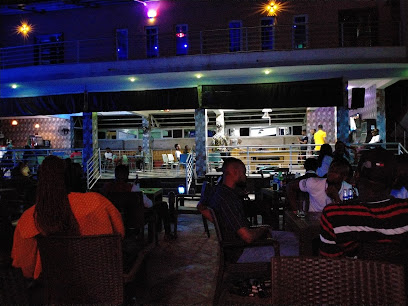
BLD Lounge/Bar
Experience the vibrant culinary scene at BLD Lounge/Bar in Enugu, where delicious grilled dishes meet a lively atmosphere perfect for social gatherings.
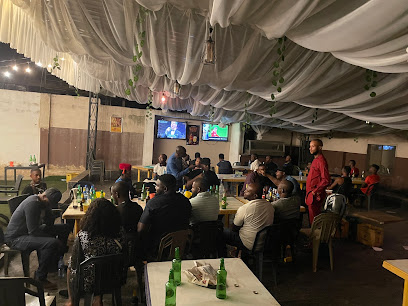
Latitude Café and Lounge
Discover the vibrant Latitude Café and Lounge in Enugu, where delightful cuisine meets a cozy atmosphere for a perfect dining experience.
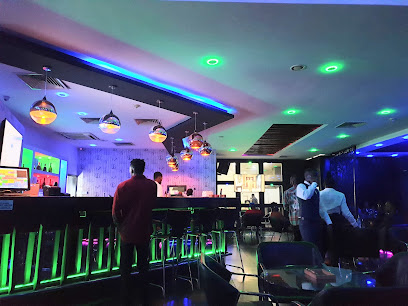
Another Level Bar
Experience the vibrant nightlife at Another Level Bar in Enugu, where local flavors and friendly vibes come together for an unforgettable evening.
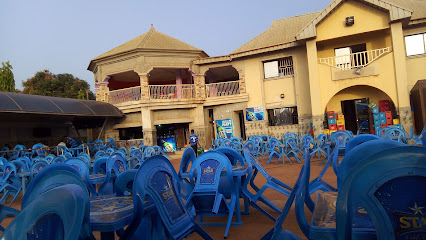
Bush House Arena
Savor the authentic taste of Nigeria at Bush House Arena, a vibrant grill restaurant in Enugu offering delicious meals and a lively atmosphere.
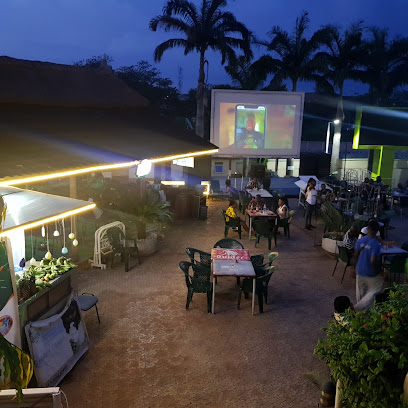
TIMELESS BAR
Unwind and socialize at Timeless Bar, Enugu's premier nightlife destination, blending great drinks with an electrifying atmosphere.
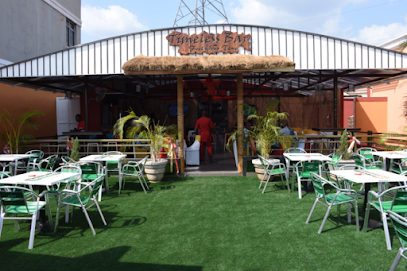
Breezzz Bar & Lounge
Experience the vibrant nightlife at Breezzz Bar & Lounge in Enugu, where relaxation meets entertainment in a stylish atmosphere.
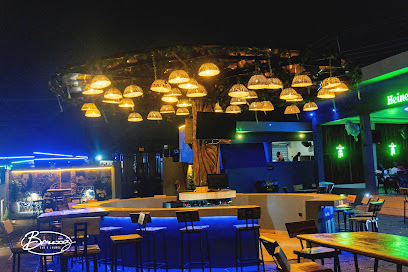
Treasure Point Garden
Experience the vibrant nightlife of Enugu at Treasure Point Garden, where great drinks and a lively atmosphere await you.
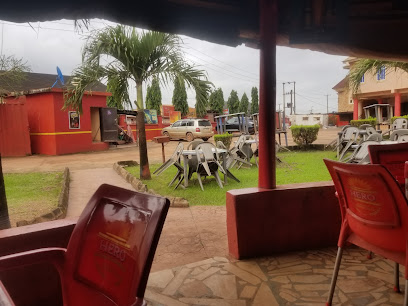
Spices Lounge
Experience the vibrant flavors and cozy ambiance of Spices Lounge, Enugu's premier destination for breakfast and evening relaxation.
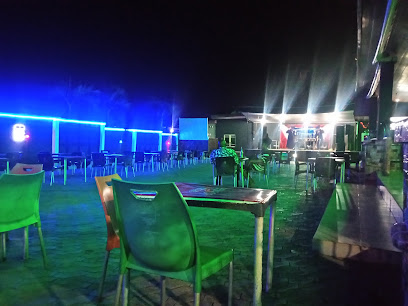
Groove Bar and Grill
Experience the vibrant culinary scene of Enugu at Groove Bar and Grill, where local flavors meet exquisite dining in a lively atmosphere.
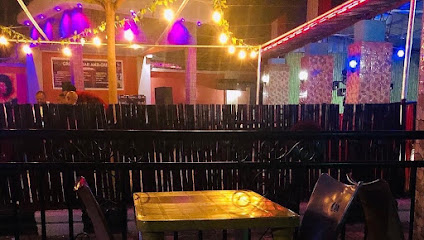
Voodoo Lounge
Discover the lively Voodoo Lounge in Enugu, a bar offering great drinks, live music, and a vibrant atmosphere for an unforgettable night out.
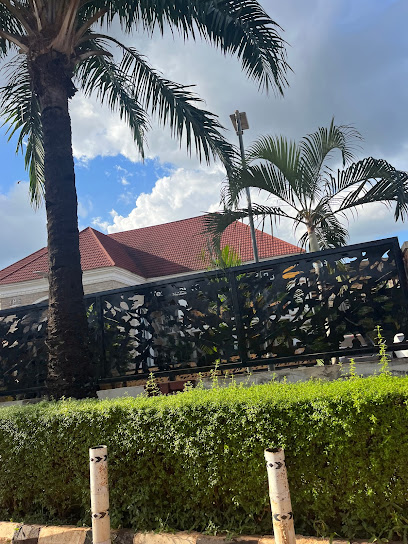
Buddies Bar and Restaurant
Experience the lively atmosphere of Buddies Bar and Restaurant in Enugu, where delicious food and vibrant nightlife come together for an unforgettable visit.
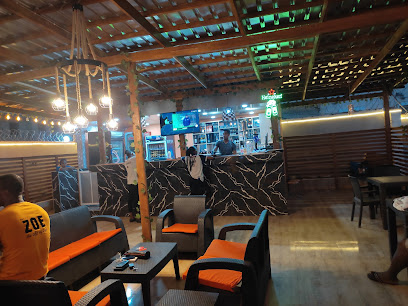
Platinum Lounge
Discover the vibrant nightlife of Enugu at Platinum Lounge - your go-to bar and nightclub for unforgettable experiences.
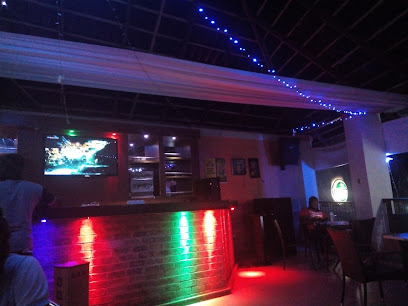
Local Phrases
-
- HelloKedu
[kay-doo] - GoodbyeKachifo
[ka-chi-fo] - YesEe
[eh] - NoMba
[um-bah] - Please/You're welcomeBiko
[bee-koh] - Thank youDaalu
[dah-loo] - Excuse me/SorryKedu ka imere?
[kay-doo kah ee-meh-reh] - How are you?Kedu ka i mere?
[kay-doo kah ee-meh-reh] - Fine. And you?Olee. Ka anyi n'asu?
[oh-lee. kah ah-nee nah-soo] - Do you speak English?O nwere ịgbasawọle n'ingiriizi?
[oh nweh-reh eeg-bah-sah-woh-leh nihn-gee-ree-zee] - I don't understandA dịghị mma
[ah dee-ghee mah]
- HelloKedu
-
- I'd like to see the menu, pleaseA ga-achọrọ menu, biko
[ah gah-ah-choh-roh meh-noo, bee-koh] - I don't eat meatA dịghị mma mmanụ
[ah dee-ghee mah mah-noo] - Cheers!Ndeewo!
[n-deh-eh-woh] - I would like to pay, pleaseA ga-eme ka m gafee, biko
[ah gah-eh-meh kah m gah-feh, bee-koh]
- I'd like to see the menu, pleaseA ga-achọrọ menu, biko
-
- Help!Ịmara!
[ee-mah-rah] - Go away!Gaa wụọ!
[gah wah-oh] - Call the Police!Kpịtụọ kpọ Police!
[kpee-too-oh kpo poh-leece] - Call a doctor!Kpịtụọ kpọ dokịta!
[kpee-too-oh kpo doh-kee-tah] - I'm lostA dịghị mma
[ah dee-ghee mah] - I'm illA dịghị mma
[ah dee-ghee mah]
- Help!Ịmara!
-
- I'd like to buy...A ga-ebi...
[ah gah-eh-bee] - I'm just lookingA na-aga m edemede
[ah nah-ah-gah mah eh-deh-meh-deh] - How much is it?Ebee ka o mere?
[eh-beh kah oh meh-reh] - That's too expensiveO nwere ike ọbara
[oh nweh-reh ee-keh oh-bah-rah] - Can you lower the price?O nwere ike ịkpịta ego?
[oh nweh-reh ee-keh ee-kpee-tah eh-goh]
- I'd like to buy...A ga-ebi...
-
- What time is it?Kedukwara nkeji bụ?
[kay-doo-kwah-rah nkeh-jee boo] - It's one o'clockỌbụla bụ otu
[oh-boo-lah boo oh-too] - Half past (10)Nkata na nọrọ (iri)
[n-kah-tah nah noh-roh ee-ree] - MorningUtutu
[oo-too-too] - AfternoonEhihie
[eh-hee-heh] - EveningMgbede
[m-gbeh-deh] - YesterdayN'ọkwa
[nah-oh-kwah] - TodayTaa
[tah] - TomorrowỤbọchị
[oo-boh-chee] - 1Otu
[oh-too] - 2Abụọ
[ah-boo-oh] - 3Ato
[ah-toh] - 4Anọ
[ah-noh] - 5Ise
[ee-seh] - 6Isii
[ee-see-ee] - 7Asaa
[ah-sah-ah] - 8Asato
[ah-sah-toh] - 9Ihere
[ee-heh-reh] - 10Iri
[ee-ree]
- What time is it?Kedukwara nkeji bụ?
-
- Where's a/the...?Ebee ka...
[eh-beh kah] - What's the address?Kedụ aha?
[kay-doo ah-hah] - Can you show me (on the map)?O nwere ike ịchọrọ m (na map)?
[oh nweh-reh ee-keh ee-choh-roh m (nah map)] - When's the next (bus)?Kedukwara ugbu a?
[kay-doo-kwah-rah oog-boo ah] - A ticket (to ....)Ego (kwaa ....)
[eh-goh kwah]
- Where's a/the...?Ebee ka...
History of Enugu
-
Enugu, often referred to as the Coal City, was founded in 1909 after the discovery of coal by a team led by British geologist Albert Ernest Kitson. This discovery marked the beginning of the city's development as a major coal mining town and set the stage for its future economic significance in Nigeria.
-
During the colonial period, Enugu became an important administrative and commercial hub for the British colonial government. The construction of the Eastern Line railway in the 1920s significantly boosted the city's growth, facilitating the transportation of coal and other goods from the region to the coast for export.
-
The outbreak of World War II had a profound impact on Enugu. Coal from Enugu was essential for the British war effort, leading to an increase in coal production and the expansion of mining operations. The city's infrastructure and population grew rapidly during this period due to the heightened demand for coal.
-
After Nigeria gained independence in 1960, Enugu continued to develop as an industrial city. The Nigerian government invested heavily in infrastructure and industry, establishing factories and other businesses that contributed to the city's economic growth. Despite the decline in coal mining, Enugu remained a vital industrial center.
-
Enugu played a significant role during the Nigerian Civil War, also known as the Biafran War, which lasted from 1967 to 1970. The city served as the initial capital of the secessionist state of Biafra. It was heavily affected by the conflict, suffering damage and hardship as a result of the war.
-
In the years following the civil war, Enugu experienced a cultural renaissance. The city became a center for arts and culture, with numerous cultural festivals, theaters, and art galleries. This period saw the rise of notable Nigerian artists, writers, and musicians who drew inspiration from Enugu's rich cultural heritage.
-
Today, Enugu is a bustling urban center known for its vibrant culture, educational institutions, and economic activities. The city has a diverse population and serves as a gateway to the southeastern region of Nigeria. Its historical sites, cultural landmarks, and modern amenities make it a popular destination for both tourists and business travelers.
Enugu Essentials
-
Enugu is well-connected by air and road. The Akanu Ibiam International Airport serves as the main gateway for air travelers, with regular flights from major Nigerian cities like Lagos, Abuja, and Port Harcourt, as well as some international destinations. For road travel, Enugu is accessible via the A3 highway, which connects it to other major cities in Nigeria. Long-distance buses operated by companies like ABC Transport and God is Good Motors are available from cities such as Lagos, Abuja, and Onitsha.
-
In Enugu, transportation options include taxis, motorcycle taxis (okadas), and tricycles (keke napeps). Taxis are readily available and can be hailed on the street or booked via ride-hailing apps like Uber and Bolt. Okadas and keke napeps are commonly used for short distances and are an affordable means of getting around. Public buses operate on fixed routes and are a cost-effective option, though they may be crowded during peak hours. Car rental services are also available for those who prefer to drive themselves.
-
The official currency in Nigeria is the Nigerian Naira (NGN). Credit and debit cards are accepted in major hotels, restaurants, and shopping centers in Enugu. However, it is advisable to carry cash, especially when visiting local markets and smaller establishments. ATMs are widely available across the city, but it is wise to withdraw sufficient cash for your needs, as not all places accept card payments.
-
Enugu is relatively safe for tourists, but like any city, it is important to take standard precautions. Avoid walking alone at night, especially in less populated areas. Areas like Abakpa and Coal Camp have reported higher crime rates, so exercise caution when visiting these neighborhoods. Keep your personal belongings secure and be cautious when using ATMs. It is also advisable to use registered taxis or ride-hailing apps for transportation.
-
In case of an emergency, dial 112 for immediate assistance. Enugu has several hospitals and clinics, including the University of Nigeria Teaching Hospital and the National Orthopaedic Hospital. Pharmacies are available throughout the city for over-the-counter medications. It is recommended to have comprehensive travel insurance that covers medical emergencies.
-
Fashion: Do dress modestly, especially when visiting religious sites or rural areas. Avoid wearing revealing clothing. Religion: Do respect local customs and religious practices. Remove your shoes when entering a mosque or a traditional home. Public Transport: Do be courteous and respectful to fellow passengers. Avoid loud conversations and keep your belongings close. Greetings: Do greet people politely with a handshake. It is customary to greet elders with a slight bow or by addressing them respectfully. Eating & Drinking: Do try local dishes and accept food offerings graciously. Don't eat or drink in public during fasting periods, such as Ramadan, out of respect for those observing the fast.
-
To experience Enugu like a local, visit the Ogbete Main Market for a variety of goods including fresh produce, traditional clothing, and handicrafts. Engage with locals, who are often warm and willing to share insights about their culture and history. Don’t miss visiting the Ngwo Pine Forest and Waterfall for a serene escape. For a taste of local cuisine, try dishes like abacha (African salad) and okpa (Bambara nut pudding).
Nearby Cities to Enugu
-
Things To Do in Onitsha
-
Things To Do in Asaba
-
Things To Do in Owerri
-
Things To Do in Uyo
-
Things To Do in Calabar
-
Things To Do in Port Harcourt
-
Things To Do in Benin City
-
Things To Do in Mamfe
-
Things To Do in Warri
-
Things To Do in Abuja
-
Things To Do in Bamenda
-
Things To Do in Dschang
-
Things To Do in Nkongsamba
-
Things To Do in Mbouda
-
Things To Do in Buea






